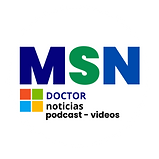

Will I have Gastroesophageal Reflux?
by Doctor Luis Javier Cárdenas
Gastroenterologist Surgeon
Obesity specialist and metabolism
Gastroesophageal reflux is a condition that most individuals have suffered at least once in their life, especially after a copious intake of fats, irritants and alcohol, however, which is not normal and defines it as a disease , is to suffer from it frequently at least once a week, which affects your daily life, work, sleep and your relationship.
The patient suffering from gastroesophageal reflux is characterized by having the sensation that food together with gastric acid is returning to the throat through the esophagus, with irritation of the pharynx and esophagus, which can additionally cause spasms and burning pain.
Other symptoms can accompany the reflux is the presence of repetitive cough that seems incurable (thinking that it is a chronic cold with many visits to the doctor and without improvement) is the result of nocturnal reflux when we sleep; The burning in the chest behind the sternum is another symptom that irritates the esophagus so much that the patient can feel the passage of food when he eats, due to the degree of inflammation. Whether the symptoms are mild or intense, this entity has treatment that ranges from taking medications to surgery.
🔔 Síntomas Comunes
🔹 Otros síntomas que pueden acompañar al reflujo incluyen tos repetitiva aparentemente incurable (confundida con resfriado crónico, generando múltiples consultas médicas sin mejoría) causada por reflujo nocturno durante el sueño; también ardor en el pecho detrás del esternón, que puede irritar tanto el esófago que el paciente siente el paso de los alimentos al comer, debido al grado de inflamación.
🔹 Ya sean leves o intensos los síntomas, esta condición tiene tratamiento, que va desde medicamentos hasta cirugía.
🧬 Origen
🔹 El origen de estos síntomas se debe principalmente a la falta de cierre del esfínter esofágico inferior, una válvula ubicada entre el estómago y el esófago, que permite el paso del ácido hacia el esófago.
🔄 Factores Involucrados
🔹 Otros factores que favorecen el reflujo incluyen: Hernia Hiatal (permite que parte del estómago se deslice al tórax), Obesidad (aumenta la presión intraabdominal), trastornos de la motilidad esofágica (alteran la propulsión de alimentos), y presencia de Helicobacter Pylori (bacteria que inflama la mucosa gástrica, favorece la secreción ácida e influye en el mecanismo de los esfínteres).

The origin of this symptomatology is given by several mechanisms, the main one being the lack of closure of a valve that is between the stomach and the esophagus, which is called the lower esophageal sphincter, allowing the passage of acid to the esophagus.
Other factors may be involved that favor reflux such as Hiatal Hernia that allows part of the stomach to slide into the thorax, Obesity which increases intra-abdominal pressure favoring reflux, esophageal motility disorders altering the mechanism of propulsion of food Finally, the presence of Helicobacter Pylori (bacteria that can inflame the Gastric mucosa and promote the secretion of acid) influencing the sphincter mechanism.
Gastro-esophageal reflux is one of the most frequent causes - along with gastritis - for consultation in gastroenterology. Initially it is treated with antacids and changes in eating habits, but if, despite this drug treatment for 6 weeks, the symptoms persist or return, the next step is to perform an endoscopy, in addition to a pH measurement, a Manometry, and more recently Pepsinogen saliva test to define the causal diagnosis of the disease.